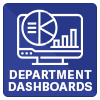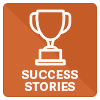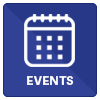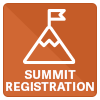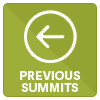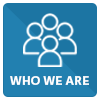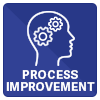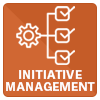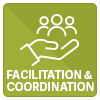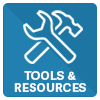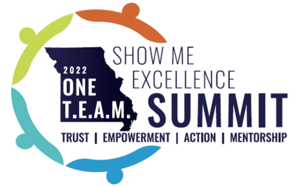
To watch a session, click the link in the agenda below.
All 2022 Summit content will be posted to MoLearning.
Featured Presenters
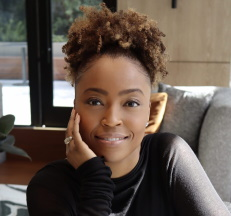
Trier Bryant
Trier Bryant is Co-Founder and CEO of Just Work which helps organizations and individuals build more equitable workplaces. She’s previously held leadership roles at Astra, Twitter, Goldman Sachs, and proudly served in the Air Force as a Captain, leading engineering teams while spearheading diversity, equity, and inclusion (DEI) initiatives. She has also been featured as an influential DEI practitioner by several publications and outlets from USA Today to CNN and SXSW.
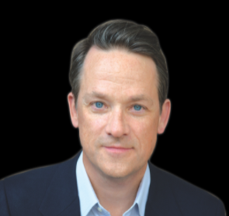
Daniel Coyle
Daniel Coyle is the New York Times bestselling author of numerous books, including The Culture Code , which was named Best Business Book of the Year by Bloomberg, BookPal, and Business Insider. Coyle has served as an advisor to many high-performing organizations, including the Navy SEALs, Microsoft, Google, and the Cleveland Guardians. His other books include: The Talent Code, The Secret Race, The Little Book of Talent , and Hardball: A Season in the Projects, which was made into a movie starring Keanu Reeves. His most recent book is The Culture Playbook: 60 Highly Effective Actions to Help Your Group Succeed. Coyle was raised in Anchorage, Alaska, and now lives in Cleveland Heights, Ohio, during the school year, and Homer, Alaska during the summer with his wife Jenny and their four children.

Amy Edmondson
Professor Amy Edmondson at Harvard Business School, a leading expert on teamwork, psychological safety and leadership, has been ranked by Thinkers50 as one of the top thinkers in management since 2011, and was ranked #1 in November 2021. Her most recent book is The Fearless Organization: Creating Psychological Safety in the Workplace for Learning, Innovation, and Growth (Wiley 2019). Her new book, Right Kind of Wrong: The Science of Failing Well, is expected to be published by Atria Books (Simon & Schuster) in September 2023.
Agenda
9:30-9:45
Opening Ceremony
9:45-10:35
Crack Your Culture Code – Daniel Coyle, Author
Great cultures, Dan has found, are built on three essential skills: safety, vulnerability, and purpose. These skills help team members create connection and trust while maintaining a focus on common goals. Learned during his years studying the ways successful groups work together, Dan will be sharing concrete, actionable tips and exercises that will help your team build a cohesive, positive culture.
10:40-11:30

TRUST
Trusting the Process: How Inclusion Can Improve Your Department – Ollie Green, Department of Elementary and Secondary Education
Building an inclusive workplace is not an easy undertaking. It takes an exponential amount of courage, confidence, and determination to implement comprehensive inclusive strategies. The Office of Adult Learning and Rehabilitation Services (OLARS), a division of the Department of Elementary and Secondary Education, has been implementing inclusion principals for its team members and clients for several years. This breakout session will give leaders insight into what strategies OLARS utilized that yielded big results. Topics covered include, the effect inclusion has on your organization, how to measure success, and strategies to improve inclusion efforts in your department.
EMPOWERMENT
We Need Failure to Succeed – Rebecca Moyers, Office of Administration
Do you feel safe to fail at work? The best way to continuously improve is to acknowledge and take time to learn from our failures. We are all leaders, and how you react to these mistakes can dictate our ability to improve processes and sustain change. During our time together we will explore ways to create a safe space to fail, decrease the impact of our mistakes, and increase the ability to make meaningful change.

ACTION
Change Management and How to Use the Tools to Change your Culture – Anne Precythe and David Edwards, Department of Corrections
In 2017 after several years of media reporting and staff complaints of a toxic work environment, the Department of Corrections took a hard look at our organizational health to understand how and where we could change. By that time, many staff had reached a breaking point over what many perceived as failed administration, a culture that allegedly tolerated discrimination, harassment, retaliation and a “good ole boy” system in place for promotions. This session describes the Department’s journey from an unhealthy, morale draining environment to become an organization that values and appreciates team members and utilizes an overarching vision of rapport, trust, and respect to inform promotion and leadership decisions. We will review our use of the state Quarterly Pulse Survey, a framework called “The Corrections Way” and other leadership practices used to make significant changes in key organizational health metrics.

MENTORSHIP
The Benefits of a Mentor Program – Beckie Brietzke, Office of Administration
In this session we will outline the many benefits of mentoring, for both participants and the organization. We will discuss why those benefits matter in both the short-term and long-term trajectory of your career. Participants will learn about what the expectations are for those who will be a mentor or a mentee as well as the overall skills needed for an effective mentorship. This session will also include learning how to write and set effective goals for the future, understanding communication styles, and learning styles and how to give good, effective feedback. Attending the workshop is a great opportunity to connect with others and grow your own leadership, communication, and interpersonal skills.
11:35-12:25
PSychological Safety – Amy Edmondson, Harvard Business School
Amy’s expertise in failure comes from more than two decades of work as a research scientist, writer, and teacher, best known for pioneering work on psychological safety—the notion that people and organizations flourish when a culture encourages and supports speaking up, asking questions, seeking help, and sharing mistakes. To make full use of psychological safety, Amy believes that we must internalize the science of failure. Its lessons invite us to accept challenges with less fear—to foray boldly, to stretch, and to walk away wiser when we miss the mark. Amy will share how embracing our fallibility, along with the fallibility of the organizations we create and work in, helps us truly thrive in a world that keeps changing.
12:25-1:00
Lunch
1:00-1:50
Reduce Bias In Your Workplace – Trier Bryant, Co-Founder and CEO, Justwork
We all must learn to recognize the difference between bias, prejudice, and bullying, and to respond differently to each. Bias is “not meaning it,” prejudice is “meaning it,” and bullying is “being mean.” To confront bias, we can use an “I” statement to invite the other person to see things the way we do. To confront prejudice, we can use an “it” statement to clearly show the other person where the line between their right to believe whatever they want and our right not to allow them to impose their beliefs on us is. Lastly, to confront bullying, we can use a “you” statement to show the other person there will be negative consequences for their behavior. Trier will share that when we clean up misconceptions and the behaviors that go with them, we build happier, more productive workplaces.
1:55-2:45

TRUST
Fostering Trust for High Performers – Ted Delicath, McChrystal Group
Drawing on McChrystal Group’s background in the military’s special forces, the discussion will focus on the foundation of trust and, from it, all other necessary team dynamics flow. Fortunate to have spent 12+ months serving beside Missouri state servants, Ted will draw on his experience with the Fusion Cell and Vaccine rollout, showcasing what he learned from state leaders about trust and leadership during a crisis.
EMPOWERMENT
The Power of a Recurring Team Huddle – Shari Steele and Jennifer Hentges, Department of Agriculture
Could you work more effectively if you were more connected to your team, if important information was shared on a regular basis, if you had time to share collective issues and brainstorm efficiencies? This is the power of the recurring team huddle. In this session we will talk about the purpose of a team huddle and how to make it an effective part of your business routine.

ACTION
Managing the “White Space” – Calculating Windshield Time vs. Actual Time – Michael Gallagher, World Wide Technology, and Robert Steward, End2End Solutions
In many organizations, complex processes often are broken down (e.g. per Fredrick Taylor’s “Scientific management” theories, highly adopted by Ford to create the assembly line), and humans are assigned very specific tasks. While this method in the early days of the industrial revolution fundamentally changed manufacturing in the USA and the world, today there are more sophisticated concepts of work organization to consider than simply breaking tasks down into base human movements.

MENTORSHIP
Employee Engagement: A View from the Top – Pam Goins, National Association of State Chief Administrators (NASCA), and Damon Haycock, Benefitfocus
Even before the unprecedented events of 2020, employee engagement was identified as a priority for state Chief Administrators as well as their colleagues in state government. With the onset of “The Great Resignation” and what some refer to as the “The Great Retirement,” state governments – along with private sector organizations – are experiencing significant turnover. The threat of labor shortage, coupled with the increased focus on diversity, equity, inclusion, and belonging, is changing the face of recruitment, onboarding, and career succession. This session will highlight the dynamics of employee engagement across state governments nationwide and share key findings from a recent report including the use of tools and technology, transparent performance management metrics, innovative programs and services, data collection and analysis and providing an opportunity for continuous feedback.
2:50-4:00

Panel Members:
The Quarterly Pulse Survey provides insights into the organizational health of our teams, but those insights are only as good as the actions agencies take to improve the environment for team members. See examples of how some agencies are communicating and operationalizing QPS insights into the daily functions of the organization.
